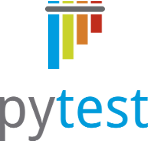Posts Tagged ‘testing’
pytest development reorganization, adopt pytest month!
 Today I went live with shifting pytest development to be more community driven. During a discussion at FOSDEM 2015 a significant subset of pytest contributors decided to create two organisations at github and bitbucket and shift core pytest and several plugins to them, on the initial suggestion of Anatoly Bubenkoff. See the new pytest contribution page for details. The teams currently have a dozen members and we are looking forward to integrate more contributors which all get full access and commit rights to all repositories, can push to the website and release to pypi.
Today I went live with shifting pytest development to be more community driven. During a discussion at FOSDEM 2015 a significant subset of pytest contributors decided to create two organisations at github and bitbucket and shift core pytest and several plugins to them, on the initial suggestion of Anatoly Bubenkoff. See the new pytest contribution page for details. The teams currently have a dozen members and we are looking forward to integrate more contributors which all get full access and commit rights to all repositories, can push to the website and release to pypi.
Also at FOSDEM 2015, core pytest contributor Brianna Laugher suggested and started the Adopt pytest month initiative which will bring together pytest contributors, users and Open Source projects interested to use pytest in their project. Many pytest contributors and practioners will participate which means you get excellent support for bringing your testing efforts up to speed with pytest.
The pytest team is also working towards a pytest-2.7 release, take a peak at the current changelog. If you like to get something in, now is a good time to submit a pull request. Or, if you are working with a company you may contract merlinux which in turns contracts contributors to quickly resolve any issues you might have or organises in-house training or consulting. Apart from the direct benefit for your company it’s also a good way to support a sustained and ever-improving testing infrastructure commons for Python (pytest, tox, devpi projects in particular).
Written by holger krekel
February 27, 2015 at 2:56 pm
Posted in metaprogramming
pylib 1.0.0 released: the testing-with-python innovations continue
Took a few betas but finally i uploaded a 1.0.0 py lib release, featuring the mature and powerful py.test tool and "execnet-style" elastic distributed programming. With the new release, there are many new advanced automated testing features – here is a quick summary:
- funcargs – pythonic zero-boilerplate fixtures for Python test functions :
- totally separates test code, test configuration and test setup
- ideal for integration and functional tests
- allows for flexible and natural test parametrization schemes
- new plugin architecture, allowing easy-to-write project-specific and cross-project single-file plugins. The most notable new external plugin is oejskit which naturally enables running and reporting of javascript-unittests in real-life browsers.
- many new features done in easy-to-improve default plugins, highlights:
- xfail: mark tests as "expected to fail" and report separately.
- pastebin: automatically send tracebacks to pocoo paste service
- capture: flexibly capture stdout/stderr of subprocesses, per-test …
- monkeypatch: safely monkeypatch modules/classes from within tests
- unittest: run and integrate traditional unittest.py tests
- figleaf: generate html coverage reports with the figleaf module
- resultlog: generate buildbot-friendly reporting output
- …
- distributed testing and elastic distributed execution:
- new unified "TX" URL scheme for specifying remote processes
- new distribution modes "–dist=each" and "–dist=load"
- new sync/async ways to handle 1:N communication
- improved documentation
The py lib continues to offer most of the functionality used by the testing tool in independent namespaces.
Some non-test related code, notably greenlets/co-routines and api-generation now live as their own projects which simplifies the installation procedure because no C-Extensions are required anymore.
The whole package should work well with Linux, Win32 and OSX, on Python 2.3, 2.4, 2.5 and 2.6. (Expect Python3 compatibility soon!)
For more info, see the py.test and py lib documentation:
have fun, holger
Written by holger krekel
August 4, 2009 at 10:05 am
Posted in metaprogramming, testing
Tagged with metaprogramming, testing
py.test: shrinks code, grows plugins and integration testing
Just before Pycon i uploaded the lean and mean py.test 1.0.0b1 beta release. A lot of code got moved out, most notably the greenlets C-extension. This simplifies packaging and increases the py lib’s focus on test facilities. It now has a pluginized architecture and provides funcargs which tremendously help with writing functional and integration tests. One such example are py.test’s own acceptance tests checking behaviour of the command line tool from a user perspective. Other features include a zero-install mechanism for distributing tests which also allow to conveniently drive cross-platform integration tests.
Unittesting, functional and integration testing are now official targets. No doubt, Test category naming is a slippery subject and it’s a good idea to consider test category names as labels rather than "either-or" categories. In the end, tests are about being useful for software development which today means coding for a wide variety of environments and involving integration and deployment issues on every corner. I think that testing tools yet have to develop their full potential. In my opinion, automated testing and deployment techniques are to fully integrate with each other, and i consider coding of distributed integration test scenarios as key to that.
The upcoming final py.test 1.0 release i’d like to make a starting point for facilitating the integration of many more test methods and test mechanisms via plugins. Some people already contributed a pytest_figleaf (for coverage testing) and pytest_twisted (for running twisted style tests) although i am still only finalizing API details and writing up docs. So I am very happy how things are turning out and also motivated by the positive feedback on the two testing tutorials that Brian Dorsey and me gave at Pycon (see his writeup).
Btw, if you use the quickstart and encounter any problems, please use the brand new issue tracker on bitbucket. I started hosting a mercurial py.test trunk repository and so far it’s been a positive experience and I guess I fully switch to mercurial soon. Alas, i probably drop setuptools before i go 1.0 with py.test – it simply causes too many troubles. py.test’s trunk has a straightforward setup.py and i intend to release a second beta with refined docs and removed setuptools. Stay tuned for many more news in May – right now, i am looking forward to some 1-week offline holiday 🙂
cheers, holger
Written by holger krekel
April 18, 2009 at 9:05 pm
Posted in metaprogramming, testing
Tagged with metaprogramming, testing
Monkeypatching in unit tests, done right
[updated, thanks to marius].
I am currently preparing my testing tutorials for Pycon and here is an example i’d lke to share already.
The problem: In a test function we want to patch an Environment variable and see if our application handles something related to it correctly. The direct approach for doing this in a test function might look like this:
def test_envreading(self):
old = os.environ['ENV1']
os.environ['ENV1'] = 'myval'
try:
val = myapp().readenv()
assert val == "myval"
finally:
os.environ['ENV1'] = old
If we needed to do this several times for test functions we’d have a lot of repetetive boilerplatish code. The try-finally and undo-related code does not even take into account that ENV1 might not have been set originally.
Most experienced people would use setup/teardown methods to get less-repetetive testing code. We might end up with something slightly more general like this:
def setup_method(self, method):
self._oldenv = os.environ.copy()
def teardown_method(self, method):
os.environ.clear()
os.environ.update(self._oldenv)
def test_envreading(self):
os.environ['ENV1'] = "myval"
val = myapp().readenv()
assert val == "myval"
This avoids repetition of setup code but it scatters what belongs to the test function across three functions. All other functions in the Testcase class will get the service of a preserved environment although they might not need it. If i want to move away this testing function i will need to take care to copy the setup code as well. Or i start subclassing Test cases to share code. If we then start to need modifying other dicts or classes we have to add code in three places.
Monkeypatching the right way
Here is a version of the test function which uses pytest’s monkeypatch` plugin. The plugin does one thing: it provides a monkeypatch object for each test function that needs it. The resulting test function code then looks like this:
def test_envreading(self, monkeypatch):
monkeypatch.setitem(os.environ, 'ENV1', 'myval')
val = myapp().readenv()
assert val == "myval"
Here monkeypatch.setitem() will memorize old settings and modify the environment. When the test function finishes the monkeypatch object restores the original setting. This test function is free to get moved across files. No other test function or code place is affected or required to change when it moves.
Let’s take a quick look at the “providing” side, i.e. the pytest_monkeypatch.py plugin which provides “Monkeypatch” instances to test functions. It makes use of pytest’s new pyfuncarg protocol.
The plugin itself is free to get refined and changed as well, without affecting the existing test code. The following 71 lines of code make up the plugin, including tests:
class MonkeypatchPlugin:
""" setattr-monkeypatching with automatical reversal after test. """
def pytest_pyfuncarg_monkeypatch(self, pyfuncitem):
monkeypatch = MonkeyPatch()
pyfuncitem.addfinalizer(monkeypatch.finalize)
return monkeypatch
notset = object()
class MonkeyPatch:
def __init__(self):
self._setattr = []
self._setitem = []
def setattr(self, obj, name, value):
self._setattr.insert(0, (obj, name, getattr(obj, name, notset)))
setattr(obj, name, value)
def setitem(self, dictionary, name, value):
self._setitem.insert(0, (dictionary, name, dictionary.get(name, notset)))
dictionary[name] = value
def finalize(self):
for obj, name, value in self._setattr:
if value is not notset:
setattr(obj, name, value)
else:
delattr(obj, name)
for dictionary, name, value in self._setitem:
if value is notset:
del dictionary[name]
else:
dictionary[name] = value
def test_setattr():
class A:
x = 1
monkeypatch = MonkeyPatch()
monkeypatch.setattr(A, 'x', 2)
assert A.x == 2
monkeypatch.setattr(A, 'x', 3)
assert A.x == 3
monkeypatch.finalize()
assert A.x == 1
monkeypatch.setattr(A, 'y', 3)
assert A.y == 3
monkeypatch.finalize()
assert not hasattr(A, 'y')
def test_setitem():
d = {'x': 1}
monkeypatch = MonkeyPatch()
monkeypatch.setitem(d, 'x', 2)
monkeypatch.setitem(d, 'y', 1700)
assert d['x'] == 2
assert d['y'] == 1700
monkeypatch.setitem(d, 'x', 3)
assert d['x'] == 3
monkeypatch.finalize()
assert d['x'] == 1
assert 'y' not in d
def test_monkeypatch_plugin(testdir):
sorter = testdir.inline_runsource("""
pytest_plugins = 'pytest_monkeypatch',
def test_method(monkeypatch):
assert monkeypatch.__class__.__name__ == "MonkeyPatch"
""")
res = sorter.countoutcomes()
assert tuple(res) == (1, 0, 0), res
I can also imagine some nice plugin which supports mock objects – patching methods with some preset behaviour or tracing calls between components.
have fun, holger
Written by holger krekel
March 3, 2009 at 1:48 pm
Posted in metaprogramming, testing
Tagged with metaprogramming, mock, monkeypatch, plugin, testing

